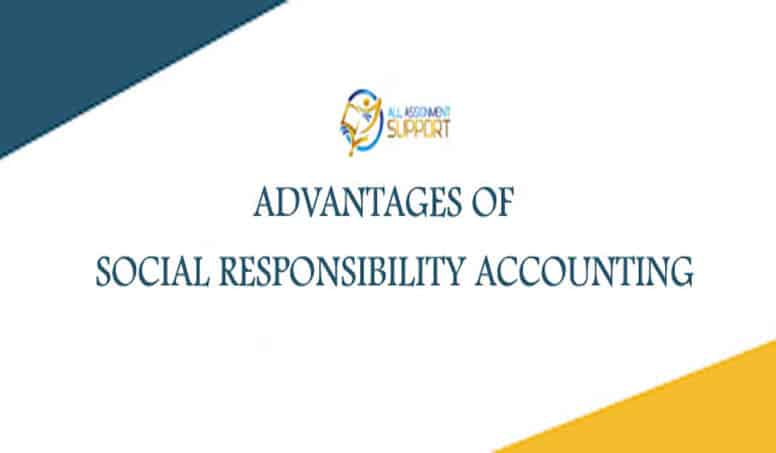Table of Contents
ToggleSocial Responsibility Accounting
Social accounting is the process of communicating the social and environmental effects of an organization’s economic actions to particular interest groups within society and to society at large. It is commonly used in the context of a business or corporate social responsibility, although any organization including NGOs, charities and government agencies may engage in social accounting. According to D.Crowther Social accounting can be defined as an approach to reporting a firm’s activities which stresses the need for the identification of socially relevant behavior, the determination of those to whom the company is accountable for its social performance and the development of appropriate measures and reporting techniques.
Social accounting is commonly used in the context of a business or corporate social responsibility. It can be used in conjunction with community-based monitoring (CBM). Social accounting is a broad field and can be divided into narrower fields. Environmental accounting may account for an organization’s impact on the natural environment whilst Sustainability accounting is quantitative of social and economic sustainability.
In social accounting, the focus tends to be on larger organizations such as multinational companies (MNCs) and their visible, external accounts rather than informally produced accounts or accounts for internal use. Social accounting also questions the reduction of all meaningful information to the financial form. Financial data is seen as only one element of the accounting language. In most countries, existing legislation only regulates a fraction of accounting for socially relevant corporate activity. As a consequence, most of the available social, environmental and sustainability reports are produced voluntarily by organizations and often resemble financial statements. But the existence of tension between voluntary reporting and accountability for companies is likely to produce reports favoring their interests. Usually, social accounting covers an organization’s relationship with the natural environment, its employees, ethical issues concentrating upon consumers and products, as well as local and international communities. Unlike in financial accounting, the matter of interest is by definition less clear-cut in social accounting. This is due to an inspired all-encompassing approach to corporate activity.
Some of the social accountability tools are Social audit, public audit, public hearing, citizen scorecard (CSC), Public expenditure Tracking Survey(PETS), use of Citizen charter and Use of Complaint Box.
Environmental accounting which is a subset of social accounting focuses on the cost structure and environmental performance of a company. It mainly describes the preparation, presentation, and communication of information related to organizations interact with the natural environment. Usually, environmental accountability is usually undertaken as voluntary self-reporting by companies, third party reports by government agencies, NGOs and other bodies pressurize for environmental accountability. Environmental accounting describes the reporting of quantitative and detailed environmental data within the non-financial sections of the annual report or in a separate environmental report. Such reports account for pollution emissions, resources used or wildlife habitat damaged or re-established. Usually, the primary emphasis is commonly placed on eco-efficiency by large companies, referring to the reduction of resource and energy used and waste production per unit of product or service.
Advantages Of Social Responsibility Accounting
The main function of Social responsibility accounting is to measure and disclose the ‘costs’ and ‘benefits’ to society created by the production-related activities of a business enterprise. They include product and quality improvement, fair business practices, human resources, environment, and community involvement. It can offer an organization a method of organizing and examining both performance and its effects on people, communities and the environment. Customers can be involved with the social accounting process and thereby feed their perspectives into the organization’s planning and measurement process. It helps in attracting new investors because of the boost in the company’s image. It serves the purpose of providing an ongoing record of how an enterprise or company has developed and its subsequent changes over time. It also helps the organization to get feedback on how things are going from the range of people involved in the organization. It helps the organization or company to make a clear picture or identify the areas where things are working well and not so well. It helps in attracting more capital inflow from various resources. It helps in the generation of clean and renewable energy from the environment. It helps the company with positive publicity. Social responsibility accounting is a commitment to improvement, managing the business process to produce an overall positive impact on society.












1 thought on “Advantages Of Social Responsibility Accounting”
Well-written article. I was checking continuously to this website and Im really inspired! Very educational information, especially the fifth sentences. I really want this kind of info. I was looking for this particular knowledge for a very long. Thankx and best of luck.